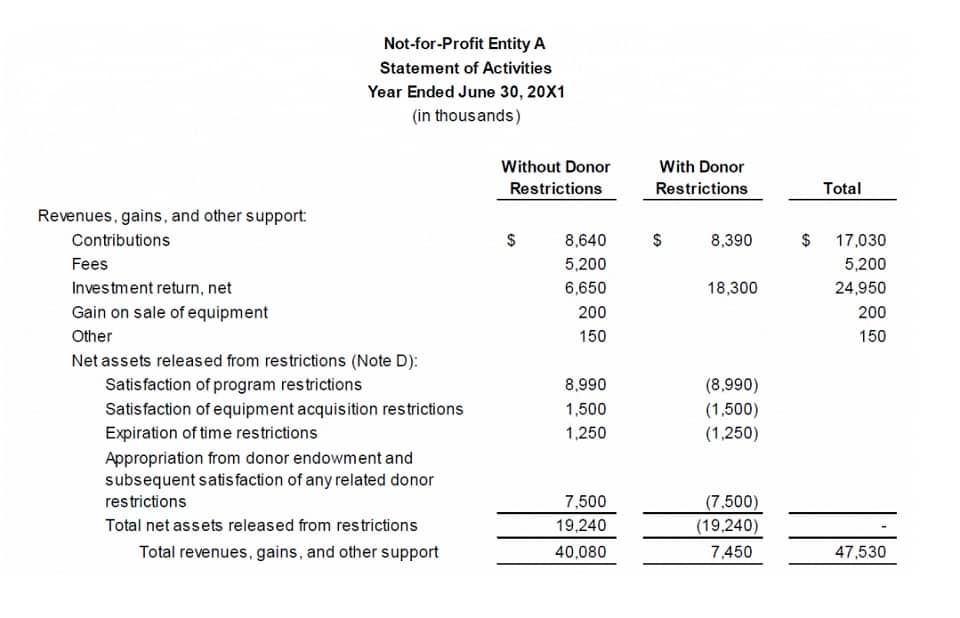Content
- Overview: What are temporary accounts?
- Stay up to date on the latest accounting tips and training
- Understanding the Difference Between Permanent and Temporary Accounts
- Terms Similar to Temporary Account
- HighRadius Autonomous Finance Platform
- Conclusion – Which is Not A Temporary Account in Accounting? – Understanding Temporary and Permanent Accounts


We help them move to modern accounting by unifying their data and processes, automating repetitive work, and driving accountability through visibility. To sustain timely performance of daily activities, banking and financial services organizations are turning to modern accounting and finance practices. Temporary accounts are zero-balance accounts that begin the financial year with a zero balance.
When preparing these statements, you must ensure that all Reports are accurate and up-to-date. It will help you make informed decisions about your business’s future performance. By monitoring these accounts closely, you can identify potential issues early on and address them accordingly. Temporary accounts are an integral part of accounting and play a significant role in preparing financial statements. These accounts help keep track of all income and expenses that have occurred throughout the year. By having records of all transactions, accountants can accurately prepare financial statements for the company.
Overview: What are temporary accounts?
Temporary accounts are created in a business’s accounting ledger to identify and define financial activity for a specific reporting period. The company may look like a very profitable business, but that isn’t really true because three years-worth of revenues were combined. In order to properly compute for the year’s total profits, as well as the total expenses, the temporary accounts must be closed, and a new balance created at the beginning of a new accounting period.


Mary Girsch-Bock is the expert on accounting software and payroll software for The Ascent. If you’re using the wrong credit or debit card, it could be costing you serious money. Our experts love this top pick, which features a 0% intro APR for 15 months, an insane cash back rate of up to 5%, and all somehow for no annual fee. It only takes one mistake for your accounts to https://simple-accounting.org/law-firm-bookkeeping-101-bench-accounting/ be thrown off completely. When this happens, it can cause the company to miscalculate everything else, which could lead to overpaying or underpaying other financial obligations. BlackLine partners with top global Business Process Outsourcers and equips them with solutions to better serve their clients and achieve market-leading automation, efficiencies, and risk control.
Stay up to date on the latest accounting tips and training
He enjoys finding ways to communicate important information in a meaningful way to others. Carter earned his Bachelor of Science in accounting from Eastern Illinois University. We’re firm believers in the Golden Rule, which is why editorial opinions are ours alone and have not been previously reviewed, approved, or endorsed by included advertisers. Editorial Outsourcing Bookkeeping: A Cost-Saving Opportunity content from The Ascent is separate from The Motley Fool editorial content and is created by a different analyst team. As you prepare for your first accounting exam covering chapters 1 to 4 of your textbook, mastering the fundamentals is the key to success. Every executive is committed to ensuring transformational success for every customer.
Purchases, Purchase Returns, Purchase Discounts, and Purchase Allowances (all under the periodic inventory system) are all temporary accounts. You or your accountant ultimately decide what temporary accounts to create, depending on what you want to track. But here are some examples of commonly used temporary accounts to help you get started.
Understanding the Difference Between Permanent and Temporary Accounts
The other main type of account is the permanent account, in which balances are retained on an ongoing basis. These accounts are aggregated into the balance sheet, and include transactions related to assets, liabilities, and equity. When comparing temporary vs. permanent accounts, two important things come to mind.
Ultimately, the beauty of temporary accounts is their ability to give you a clear picture of revenues generated, expenses incurred, and the profit or loss of the business over a fiscal year. The process starts by having your accounting software transfer the balances of the income statement temporary accounts to net income. With the accurate measurement of income in an accounting period, you can compare the business’ performance over time. Without using temporary accounts, making these comparisons would be far more challenging. Although permanent accounts are not closed at year-end, businesses need to carefully review transactions within them annually, ensuring that only the proper items are recorded.


